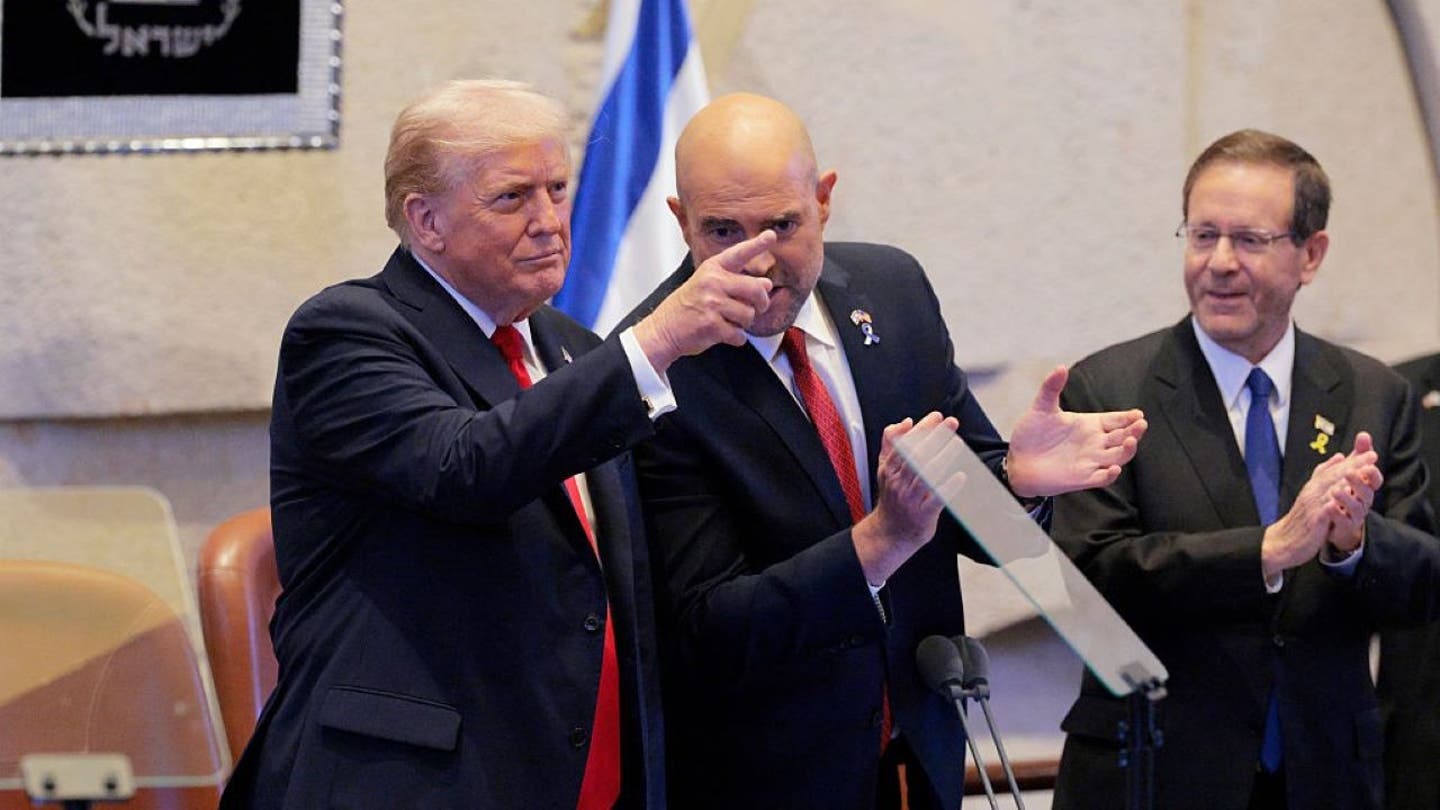
Kai Trump 'proud' of grandfather after president oversees historic Gaza ceasefire: 'He’s doing amazing things'
Entities mentioned:
- Donald Trump: Legacy, Power, Recognition
- Kai Trump: Pride, Loyalty, Recognition
- Benjamin Netanyahu: Gratitude, Loyalty, Professional pride
- Israel: Security, Self-preservation, Power
- Hamas: Power, Control, Self-preservation
Article Assessment:
Credibility Score: 65/100
Bias Rating: 75/100 (Lean Right)
Sentiment Score: 85/100
Authoritarianism Risk: 40/100 (Generally Democratic)
Bias Analysis:
The article leans right, presenting Trump and Israel in an overwhelmingly positive light. It relies heavily on praise from family and allies without presenting alternative viewpoints or critiques.
Key metric: US Global Diplomatic Influence
Let me tell you something - this story is HUGE! President Trump just pulled off a GAME-CHANGING play in the Middle East, folks! We're talking championship-level diplomacy here! The Donald stepped up to the plate and hit a grand slam with this Gaza ceasefire. He's showing MVP form, coaching both teams to a win-win solution. And let me tell you, his granddaughter Kai is cheering from the sidelines like it's the Super Bowl! Netanyahu is treating Trump like he's the GOAT of US-Israel relations - we're talking Jordan, we're talking Gretzky level respect here! This is the kind of fourth-quarter performance that cements a legacy, folks. Trump's not just playing the game, he's CHANGING it!

Turning Point USA calls for NBA employee to be fired for crude remarks about Charlie Kirk's assassination
Entities mentioned:
- Turning Point USA: Justice, Righteousness, Indignation
- NBA: Self-preservation, Professional pride, Control
- Charlie Kirk: Legacy, Influence, Ambition
- NBA Employee: Moral outrage, Indignation, Self-expression
Article Assessment:
Credibility Score: 70/100
Bias Rating: 65/100 (Lean Right)
Sentiment Score: 25/100
Authoritarianism Risk: 35/100 (Generally Democratic)
Bias Analysis:
The article leans right, focusing on the conservative perspective and framing the NBA employee negatively. It primarily presents TPUSA's side, with limited context on opposing viewpoints.
Key metric: Political Polarization Index
Let me tell you something, folks - this story is a FULL COURT PRESS of controversy! We're seeing a real clash of titans here, with Turning Point USA charging down the court, demanding the NBA step up its defense and eject a player from the game entirely. The NBA's current strategy? A two-week suspension - but that's like trying to win a championship with just a free throw, people! This employee's social media fumble has turned into a political football, and now we're watching to see if the NBA has the guts to make the tough call and send this player to the showers for good. It's fourth quarter, the clock is ticking, and the pressure is ON! Will the NBA buckle under the full-court press from TPUSA, or will they dig in their heels and defend their own? This is the kind of high-stakes play that can make or break a season, folks! The political arena is as charged as any playoff game right now, and I'm telling you, this is the kind of move that separates the champions from the also-rans!